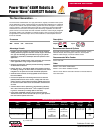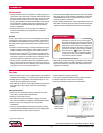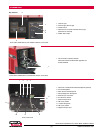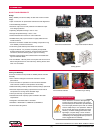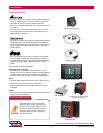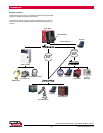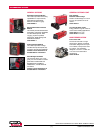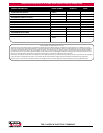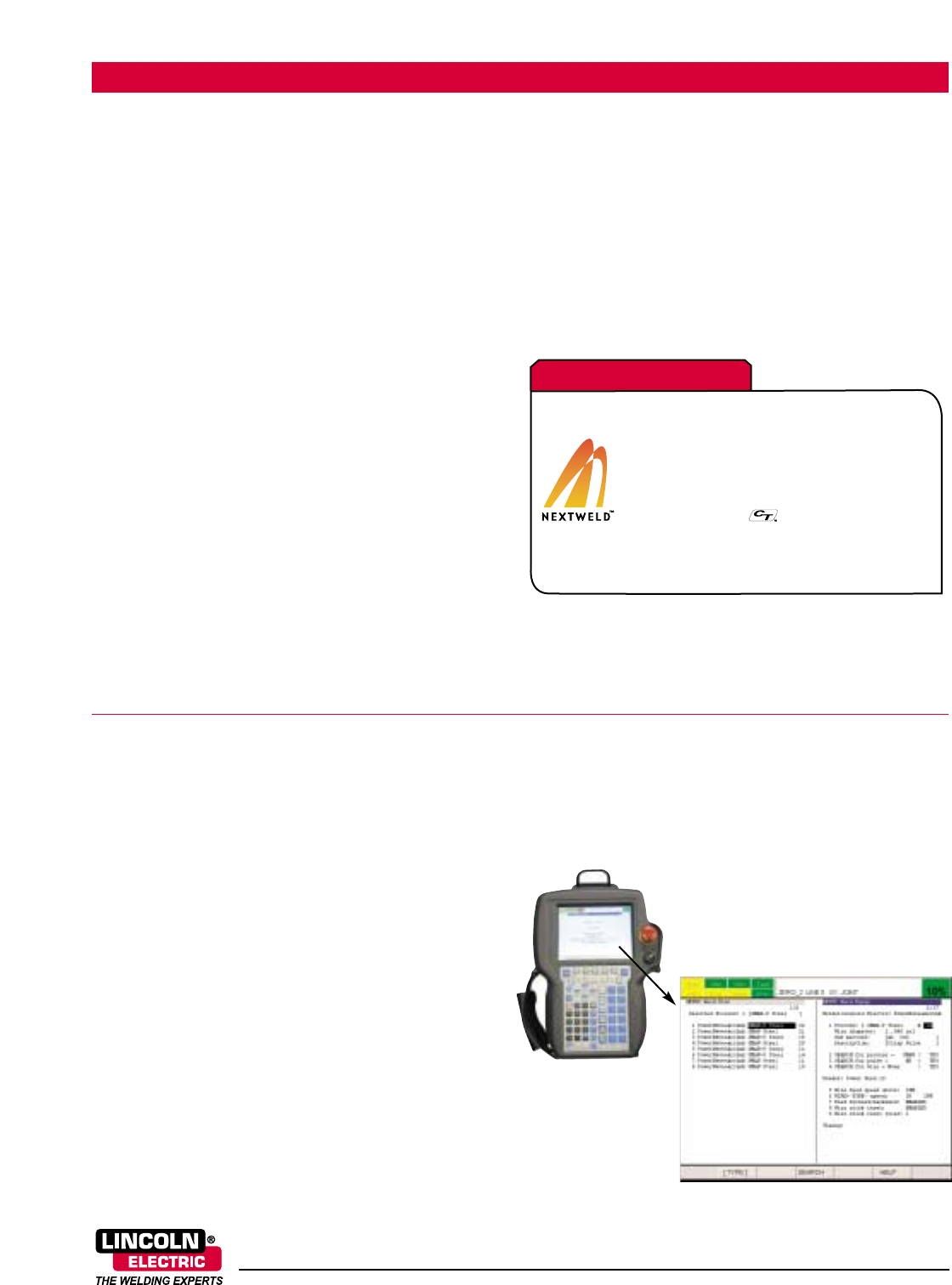
Robot Teach Pendant
• Select from over 60 standard welding procedures in the power
source library from the robot’s Teach Pendant.
• Search by process and wire type.
• Full access to all power source details, including: control loop
gains, machine calibration, arc statistics, unfiltered feedback signals.
• Access to power source diagnostic such as fault/alarm
status/details.
• ArcLink is a leading digital communications protocol for sharing
information between intelligent components in an arc welding system.
• Individual status light for each system component.
Nextweld
Lincoln's Power Wave power sources are equipped with Nextweld
innovations that offer seamless system integration, high efficiency
and reliability, and outstanding arc control. Here are just a few of
Nextweld's technologies and processes that are standard with this
machine.
• Waveform Control Technology™ controls and shapes the output
waveform. Optimizes metal transfer to reduce spatter and improve
stability. Simplifies process selection and controls heat input.
• Surface Tension Transfer (STT)
(1)
is a Waveform Control process
that uses current controls to adjust the heat independent of wire
feed speed, provides low heat input without overheating or burn-
ing through. Distortion, spatter and smoke are reduced.
• The Power Wave 455 features Ethernet and DeviceNet compati-
bility, as well as ArcLink, the leading communication protocol for
welding and the best choice for seamless, time critical integration
to the power source and networked equipment.
• State-of-the-Art Inverter technology provides high power efficiency,
excellent welding performance and a lightweight, compact design.
Rigorous environmental, mechanical and weld testing ensures
ruggedness and reliability.
Power Wave 455M Robotic and Power Wave 455M/STT Robotic
www.lincolnelectric.com
[2]
A CLOSER LOOK
PERFORMANCE
• The Power Waves contains a large library of welding programs or
“weld modes.” Each weld mode is a specific software program that
defines the output characteristics of the power source for simple
processes like Stick and TIG to more complex processes like
Synergic MIG (GMAW) and Pulsed MIG (GMAW-P). Weld modes
were developed to handle a broad range of applications. They
may be tuned to a specific electrode type, electrode diameter,
gas type or application.
• All Power Waves share a common digital control platform to
maximize interoperability, interchangeability and compatible
software tools.
• Power Wave Robotic Welding Systems feature weld mode selection,
PRE-FLOW, RUN-IN, ARC CONTROL, BURNBACK, POST-FLOW
and CRATER that provide the operators full control over the
welding procedure and sequence.
• Synergic welding eliminates the need to independently set the wire
feed speed and voltage. Synergic welding automatically sets both
voltage and pulse characteristics based on the wire feed speed.
FEATURES
• When connected to Fanuc robot, welding software is accessible via
the Robot’s teach pendant or a computer via the RS232 serial port.
• Welding software is upgradable via the RS232 serial port or via a
network using the optional Ethernet module.
• Add, customize or replace Lincoln updated welding waveforms for
every application using a laptop and Lincoln’s Wave Designer
Software.
• Simple, reliable input voltage changeover.
• Auto device recognition simplifies accessory cable connections.
• Individual status light for each system component.
• DeviceNet or Ethernet modules can be field installed.
Nextweld incorporates Lincoln's technologies,
processes and products to create a technologically
advanced arc welding platform. Waveform Control
Technology™, power electronics and digital com-
munications provide the foundation for Nextweld
innovations, including Surface Tension Transfer®,
Pulse-On-Pulse™, Chopper Technology™,
ArcLink™ and many more. Try Nextweld products
for ultimate arc control, high efficiency/reliability,
and seamless system integration.
WHAT IS NEXTWELD™?
(1) Power Wave 455M/STT only
FANUC Robot
Teach Pendant
Welding Software



